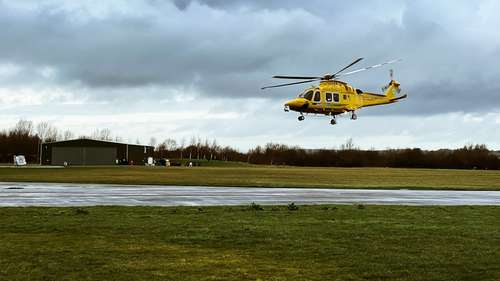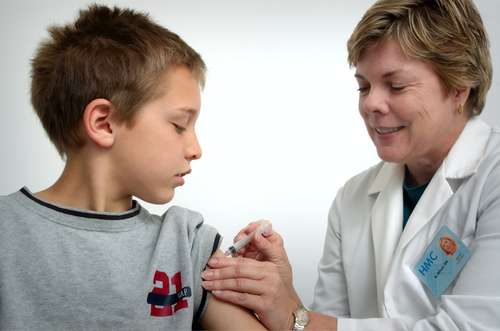Operator Defends Pilot in Fatal Helicopter Crash: A Closer Look at the Investigation
This tragic news has left many of us in shock and disbelief. A fatal helicopter crash on the Isle of Wight has claimed three lives, igniting intense debates and discussions about responsibility. In the midst of controversy, the helicopter operator has firmly defended the pilot, urging everyone to await the complete crash investigation before assigning blame. It's a complex situation, and as we sift through the details, we all hope the truth comes out. At a time when every second counts, understanding what went wrong is crucial for aviation safety.
The operator's stance is clear and heartfelt. They point out that although more than 80% of similar incidents are often linked to pilot error, allegations need further scrutiny. Was it the pilot's conduct, or were there other factors at play? This question is on everyone's mind. The operator is insisting on a thorough investigation to analyze every detail and determine what truly happened on that fateful day.
This isn't the first time we've seen such a dramatic defense from a helicopter operator following a catastrophic aviation incident. The conversation around pilot responsibility and crash analysis remains intensely personal. Many of us rely on these professionals to ensure our safety on every flight, highlighting why this case garners so much attention. When lives are on the line, every detail matters.
Operator Statement and Pilot Defense
The operator has released a detailed statement that underlines their support for the pilot amid harsh criticism. In a situation as devastating as a fatal accident, emotions tend to run high, but facts must lead the way. Their statement reminded the public that attributing blame without a complete understanding of the circumstances is both unfair and premature.
The operator statement was firm but measured, emphasizing that initial findings might point to helicopter safety lapses rather than just pilot error. They argued that too many variables can influence a crash investigation, ranging from mechanical malfunctions to weather conditions. This perspective is important because it helps us look beyond a simple finger-pointing scenario. Instead, it calls for a comprehensive analysis to ensure that the real issues are addressed.
One must ask: how can we be entirely sure of pilot conduct without considering all contributing factors? The operator's defense of the pilot reminds us that aviation accidents are rarely the result of a single mistake. Often, these cases involve layers of negligence, stress, and sometimes unavoidable environmental impacts. The dialogue around pilot responsibility should also take into account the complex technical aspects that go unnoticed by most passengers.
Adding further insight, the operator's background data noted that over 80% of similar helicopter accidents are linked to pilot error, yet they advise caution. It’s a reminder that while statistics can drive public opinion, each incident has its own unique circumstances. As we wait for a more detailed crash investigation report, the importance of adhering to proper investigative processes can’t be overstated.
Investigation and Analysis: Uncovering the Facts
Investigators are now working around the clock to piece together what exactly caused this tragic event. In their initial analysis, crucial clues have surfaced that raise questions about aircraft maintenance and pre-flight checks. The process involves a deep dive into technical logs, maintenance records, and the overall condition of the helicopter at the time of the crash.
It might seem like a puzzle, where each piece of data can change the final picture. Even small details, such as a minor delay in routine maintenance, can become significant. This is why authorities are not rushing to conclusions after the operator's statement. In investigations like these, every piece of evidence matters and must be scrutinized thoroughly.
One thing is clear: a robust crash investigation is vital in establishing the factors that led to this aviation accident. From helicopter safety checks to pilot training records, all aspects of the incident are being explored. This investigative process is critical not only to find the truth in this case but also to prevent such tragedies in the future.
When you look at past aviation incidents, you often see a common thread — the importance of addressing every detail, from environmental conditions to technical failures. Each factor may seem small on its own, yet together they create a complex scenario that demands a rational and evidence-based approach. Are we doing enough to maintain our safety protocols in helicopter operations? That is a question that this investigation may eventually help answer.
Pilot Responsibility and Helicopter Operator Procedures
The discussion about pilot responsibility in such high-stakes scenarios is never straightforward. While the operator's defense of the pilot underlines their faith in his professional conduct, it also brings attention to the broader issue of aviation safety standards. It's a conversation that deserves careful reflection and continual improvement.
In every aviation incident, there is usually a mix of factors at play. It’s like baking a cake; every ingredient, from the pilot's training to the helicopter's maintenance schedule, plays a critical role. A lapse in any one area could lead to an unexpected outcome. This analogy helps us understand why operators insist that the investigation must review every aspect of the incident with an unbiased perspective.
The operator has pointed out that although statistics show a high incidence of pilot error in similar crashes, each event must be individually assessed. This personal approach to analyzing cases prevents overly generalized snapping judgments. When discussing pilot defense, it's important to consider the real human element involved and the countless hours of rigorous training pilots undergo to meet strict safety standards.
Many aviation enthusiasts and professionals have expressed their support for a fair investigation instead of a rush to judgment. For example, several aviation news platforms have stressed the importance of a balanced perspective, noting that a delayed and careful crash analysis can lead to improved helicopter safety regulations. This incident could potentially set a new benchmark for operating procedures if the investigation uncovers systemic issues that need immediate attention.
In contexts like this, one must keep in mind that pilot conduct is only one part of a very complex equation. The helicopter operator’s emphasis on a multi-faceted investigation reinforces that no single factor has been overlooked. It highlights the urgency of enhancing operational protocols and safety measures across the board.
Looking Ahead: Ensuring Aviation Safety and Preventing Future Tragedies
With ongoing investigations, the future of helicopter safety is under a critical lens. The lessons learned from this fatal accident could help shape better operational procedures and stringent regulatory oversight. We are all hoping that this unfortunate event will drive improvements in aviation standards across the industry.
As the investigation proceeds, authorities are meticulously reviewing every detail, from flight recordings to maintenance history. It’s a long process, but each step is crucial to bring closure to the families affected and to improve helicopter operator guidelines. This entire episode reminds us how essential it is to keep learning and evolving our safety protocols even in the face of adversity.
So, while this discussion about pilot defense continues, the focus remains on an unbiased and methodical investigation. There’s hope that through diligent research and a commitment to high aviation safety standards, similar incidents can be prevented in the future. Every life matters, and each piece of evidence contributes to building a safer tomorrow.
In summary, the operator's defense of the pilot in the wake of this fatal helicopter crash pushes us to look deeper into the investigation. By questioning initial assumptions and demanding a detailed crash analysis, we are reminded that aviation incidents are complex and multifaceted. Here’s to hoping that lessons from this tragedy will eventually lead to improved helicopter safety protocols and ultimately save more lives.




